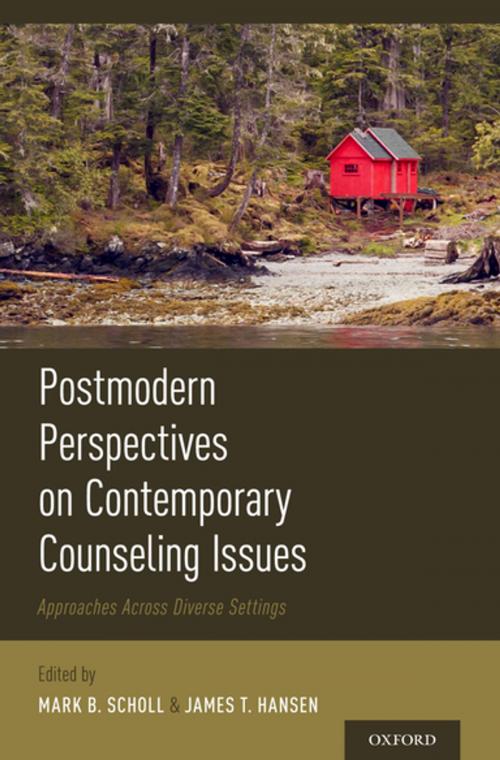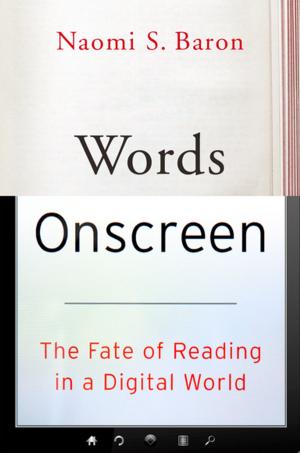Postmodern Perspectives on Contemporary Counseling Issues
Approaches Across Diverse Settings
Nonfiction, Health & Well Being, Psychology, Counselling, Social & Cultural Studies, Social Science, Social Work| Author: | ISBN: | 9780190621643 | |
| Publisher: | Oxford University Press | Publication: | April 5, 2018 |
| Imprint: | Oxford University Press | Language: | English |
| Author: | |
| ISBN: | 9780190621643 |
| Publisher: | Oxford University Press |
| Publication: | April 5, 2018 |
| Imprint: | Oxford University Press |
| Language: | English |
Postmodernism is one of the most revolutionary and transformative ideological movements to emerge in the history of counseling and psychotherapy. However, descriptions of postmodernism are often abstract and philosophical, thereby making it difficult for practitioners to discern concrete ways that the ideology might enrich their ability to help clients. In Postmodern Perspectives on Contemporary Counseling Issues, contributions from expert scholars and practitioners clearly detail the implications of postmodern ideology for counseling practice. Contemporary issues such as trauma, addiction, social justice advocacy, couples counseling, and education are conceptualized within a postmodern context, and creative treatment options are illustrated with numerous case examples. Although the broad, conceptual details of postmodernism are reviewed, the primary focus of this text is on innovative ways to help clients with solution-focused, narrative, and other postmodern approaches. The rich descriptions of the implementation of postmodern approaches and techniques make it an invaluable training tool for supervisors and counselor educators. The book is also ideal for counselors, psychotherapists, and other helping professionals who would like to bolster and enliven their practice with cutting-edge methods, tools, and techniques derived from postmodern ideology.
Postmodernism is one of the most revolutionary and transformative ideological movements to emerge in the history of counseling and psychotherapy. However, descriptions of postmodernism are often abstract and philosophical, thereby making it difficult for practitioners to discern concrete ways that the ideology might enrich their ability to help clients. In Postmodern Perspectives on Contemporary Counseling Issues, contributions from expert scholars and practitioners clearly detail the implications of postmodern ideology for counseling practice. Contemporary issues such as trauma, addiction, social justice advocacy, couples counseling, and education are conceptualized within a postmodern context, and creative treatment options are illustrated with numerous case examples. Although the broad, conceptual details of postmodernism are reviewed, the primary focus of this text is on innovative ways to help clients with solution-focused, narrative, and other postmodern approaches. The rich descriptions of the implementation of postmodern approaches and techniques make it an invaluable training tool for supervisors and counselor educators. The book is also ideal for counselors, psychotherapists, and other helping professionals who would like to bolster and enliven their practice with cutting-edge methods, tools, and techniques derived from postmodern ideology.















